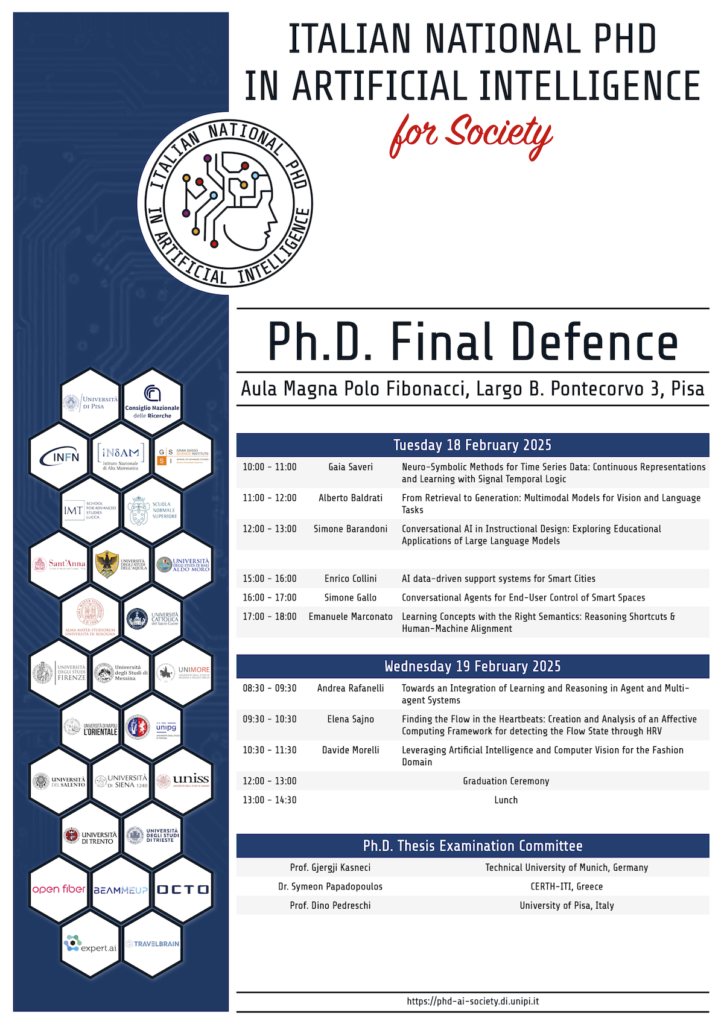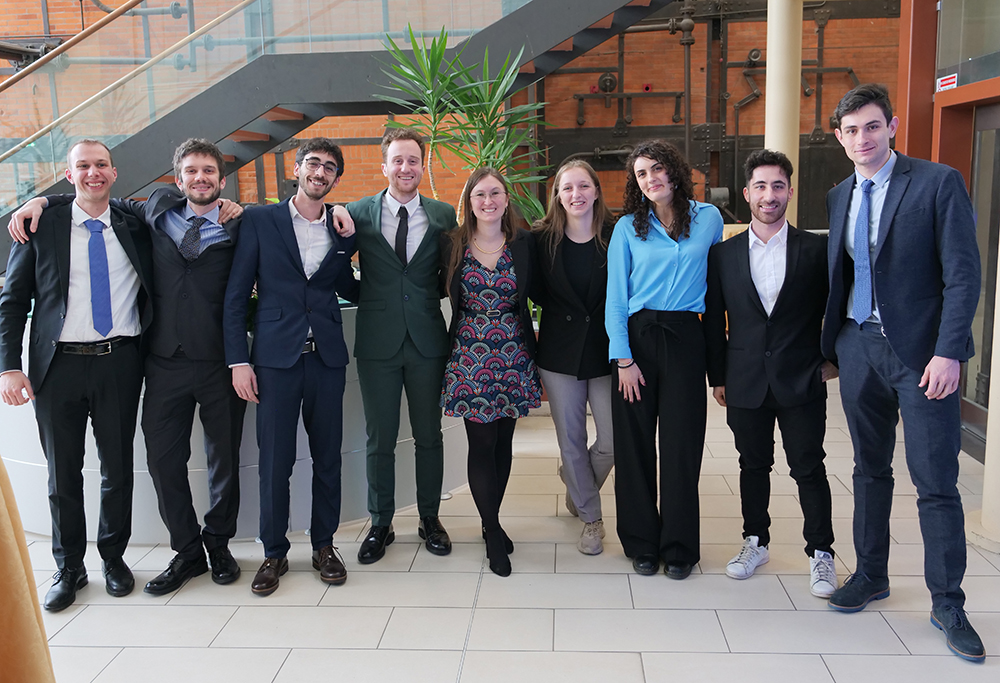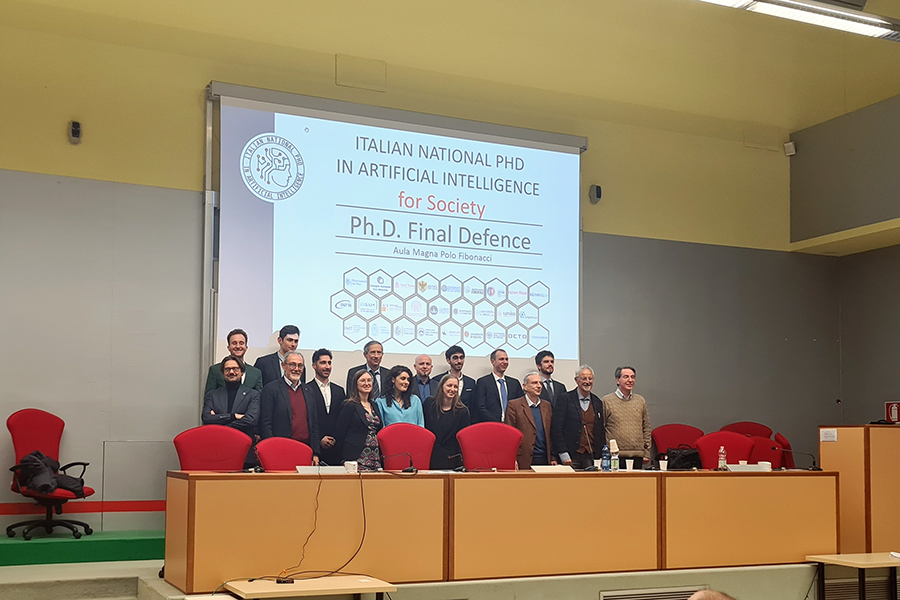
On February 19, 2025, the University of Pisa celebrated the graduation of the first nine Ph.D. candidates from the National Ph.D. Program in Artificial Intelligence – Society area. This distinguished program, established in the 2021/22 academic year, is administratively headquartered at the University of Pisa and collaborates with prominent research institutions such as CNR, INFN, INdAM, and eighteen national universities.
The ceremony, introduced by Professor Dino Pedreschi, featured remarks from University of Pisa’s Rector, Riccardo Zucchi; the Pro-Rector for Ph.D. Studies, Bernardo Tellini; Professor Salvatore Ruggieri, coordinator of the National Ph.D. in Artificial Intelligence; Professor Anna Monreale, deputy coordinator; and representatives from participating institutions, including Professor Stefano Cannicci from the University of Florence and Roberto Scopigno, director of ISTI-CNR.

Over three intensive years, the new Ph.D. graduates engaged in both national and international research, exploring topics ranging from AI applications in smart cities and fashion to the development of conversational agents and the understanding of AI models. The degrees, jointly awarded by the University of Pisa and the hosting universities, were conferred to:
- Alberto Baldrati: Thesis titled “From Retrieval to Generation: Multimodal Models for Vision and Language Tasks,” supervised by Professors Marco Bertini and Andrew David Bagdanov, hosted by the University of Florence.
- Simone Barandoni: Thesis titled “Conversational AI in Instructional Design: Exploring Educational Applications of Large Language Models,” under the guidance of Professors Filippo Chiarello and Gualtiero Fantoni, hosted by the University of Pisa.
- Enrico Collini: Thesis titled “AI Data-Driven Support Systems for Smart Cities,” discussed with Professors Paolo Nesi and Francesco Marcelloni, hosted by the University of Florence.
- Simone Gallo: Thesis titled “Conversational Agents for End-User Control of Smart Spaces,” discussed with Professors Fabio Paternò and Alessio Malizia, hosted by ISTI-CNR.
- Emanuele Marconato: Thesis titled “Learning Concepts with the Right Semantics: Reasoning Shortcuts & Human-Machine Alignment,” supervised by Professors Andrea Passerini and Stefano Teso, hosted by the University of Trento.
- Davide Morelli: Thesis titled “Leveraging Artificial Intelligence and Computer Vision for the Fashion Domain,” discussed with Professors Rita Cucchiara and Marcella Cornia, hosted by the University of Modena and Reggio Emilia.
- Andrea Rafanelli: Thesis titled “Towards an Integration of Learning and Reasoning in Agent and Multi-Agent Systems,” supervised by Professors Stefania Costantini and Andrea Omicini, hosted by the University of L’Aquila.
- Elena Sajno: Thesis titled “Finding the Flow in the Heartbeats: Creation and Analysis of an Affective Computing Framework for Detecting the Flow State through HRV,” supervised by Professors Giuseppe Riva and Nicole Novielli, hosted by Università Cattolica del Sacro Cuore.
- Gaia Saveri: Thesis titled “Neuro-Symbolic Methods for Time Series Data: Continuous Representations and Learning with Signal Temporal Logic,” supervised by Professors Luca Bortolussi and Laura Nenzi, hosted by the University of Trieste.

The examination committee comprised Professor Gjergji Kasneci (Technical University of Munich, Germany), Professor Symeon Papadopoulos (CERTH-ITI, Greece), and Professor Dino Pedreschi (University of Pisa).
The National Ph.D. in AI – Society area is designed to provide an integrated and multidisciplinary educational experience, aiming to train researchers and professionals capable of addressing contemporary societal challenges with a focus on ethics, sustainability, and inclusivity.
